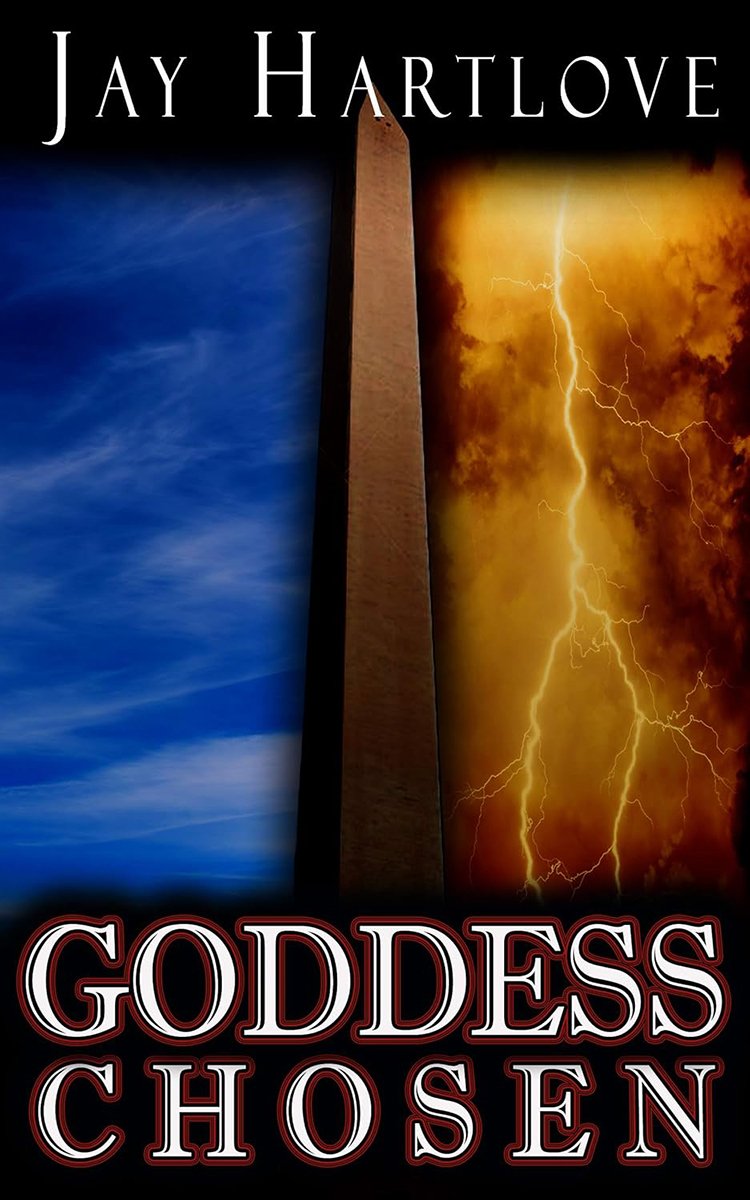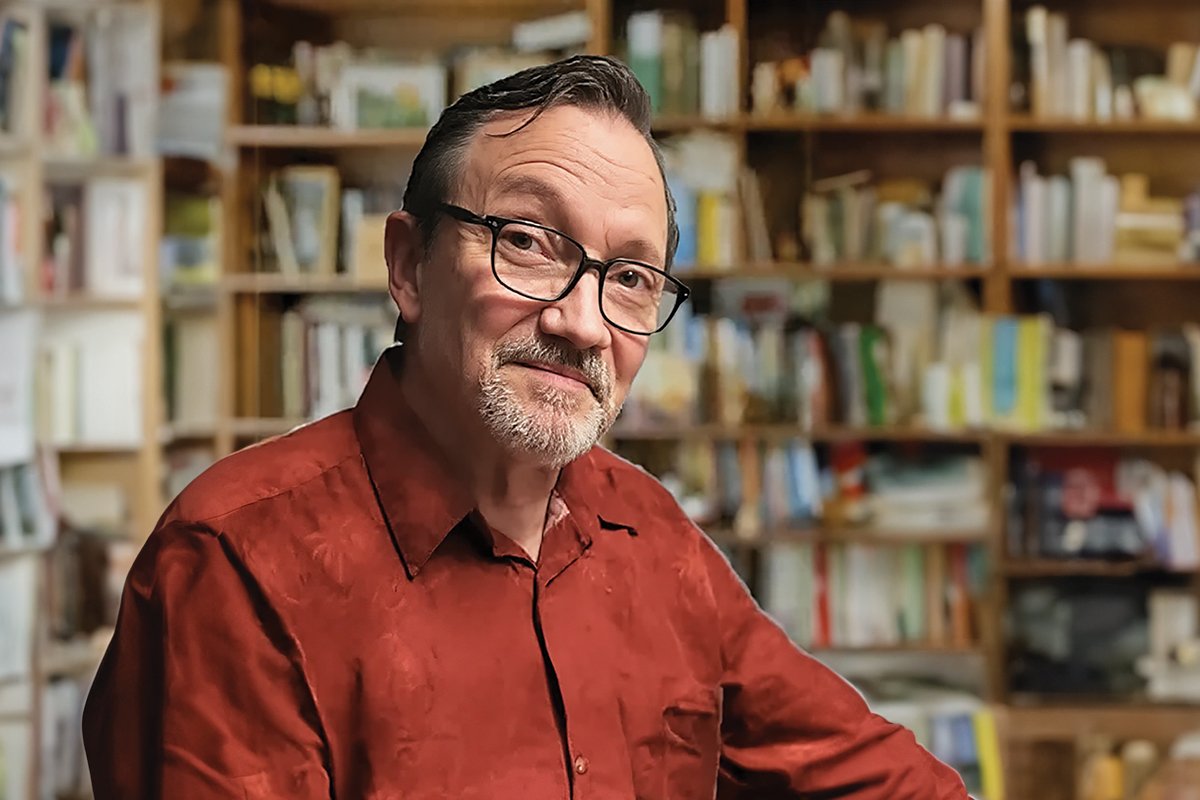Stories That Challenge And Inspire
Award-winning author Jay Hartlove delves into his inspirations, his creative process, and themes of identity, transformation, and justice, revealing the masterful techniques behind his acclaimed novels and impactful storytelling.
Jay Hartlove stands as an extraordinary luminary in the world of speculative fiction, celebrated for his bold storytelling and ingenious explorations of human nature and morality. A multiple award-winning author, his works traverse the realms of supernatural thrillers, fantasy romance, and profound science fiction, offering readers narratives that provoke, challenge, and inspire. Jay’s Goddess Rising Trilogy earned praise from horror legend John Shirley as “crazy” in the most enthralling of ways, while his compelling fantasy romance Mermaid Steel was lauded by Kirkus Reviews as “thoughtful and erotic,” deftly balancing enchantment with deeply human themes. His latest novel, The Insane God, stretches the boundaries of psychological and science fiction storytelling, described by Kirkus Reviews as “Nightmare on Elm Street meets The Stand” and earning the endorsement of luminary writer David Brin.
Beyond novels, Jay has ventured into theatre, writing and directing The Mirror’s Revenge, a musical sequel to Snow White, which captivated audiences during its run in the San Francisco Bay Area. Throughout his creative works, the heart of Jay’s storytelling lies in his ability to defy convention, introducing sympathetic villains, fractured heroes, and unforgettable journeys of personal transformation. Whether tackling themes of identity, mental health, or moral ambiguity, Jay consistently breathes life into stories that resonate far beyond the page.
Jay Hartlove is a fearless visionary who blends science, morality, and human emotion to create compelling tales that captivate and challenge readers.
In this exclusive interview, the revered author lifts the curtain on his inspirations, creative processes, and the profound personal experiences that fuel his imaginative works. From the considered portrayal of marginalised identities in The Insane God to the ethical complexities of the supernatural thriller Goddess Chosen, Jay reveals the depth of his artistry and his unwavering commitment to crafting tales that are as thought-provoking as they are captivating. It is a privilege to present the insights of such a masterful storyteller to our readers. Prepare to be inspired and intrigued by the mind behind many acclaimed and unforgettable tales.
How did your experiences as an LGBTQ ally influence the themes in The Insane God, your most recent novel exploring personal transformation?
I have two LGBTQ children, one transgender and one non-binary. Raising them, I saw first-hand the irrational hatred and the double standards they had to learn to navigate. I could not resist the urge to tell a story about such a marginalized person, a trans woman, saving the world that only wants to destroy her. The fact that she is willing to transform herself makes her uniquely suited to solve the story’s conflict.
In The Insane God, you blend science fiction with psychological insight—what drew you to combine these genres?
I actually combine three scientific disciplines in a science fiction setting: the astrophysics of the meteorites, the neuroscience of schizophrenia, and the time flows of multidimensional mathematics. Rocks fall to Earth bringing radiation that changes people’s brain chemistry. But the rocks are the remains of eons-dead gods who rekindle their ancient war here on Earth with the transformed people. The radiation only works on people with schizophrenia as they are susceptible. One god infuses rage, the other calm. The calm god is a creator who samples possible spun-off realities that appear to alter physics, in other words magic. Getting all this science right took some effort, but it was worth it to get the story to work.
The Insane God centres on how easily our minds can be manipulated—how did you research the neuroscience and psychological elements featured in the story?
I studied neuroscience in college, and I have followed advances ever since. I learned about stress and the brain when my eldest child had a breakdown. Seeing how psychoactive drugs coax the brain to change in real time was revelatory. The fact that consciousness is no more than a happy accident of many interactive processes means it can be changed with only tiny shifts in chemistry. To this day we don’t understand how anesthesia takes away consciousness. This is fertile ground for speculation in fiction. As to psychology, people react to stressors depending on their histories. If you develop a complete backstory, then it isn’t a surprise when they react a certain way. That consistency is a sign the author did their groundwork.
My endings satisfy readers because I ensure every loose thread is tied and every conflict resolved before finishing the tale.” – Jay Hartlove
In Goddess Chosen you gave the villain a Hero’s Journey—what inspired you to experiment with that structure?
If you discovered you were the reincarnation of an ancient Egyptian High Priest, and your research shows that you witnessed, in your past life, actual biblical magic, then wouldn’t you devote your life to exploring that? Silas takes up the quest his former self started, but his fervor leads him to cross moral boundaries. He wants very good things, but he is willing to do very bad things to get them. I loved stretching the reader’s sympathies. The book’s tag line is, “The man who would beat the devil isn’t a hero, but a ruthless madman.”
You wrote a trilogy, but then your next two novels were stand-alone. Will there be sequels?
I plot extensively before I start writing. I won’t devote the years of work to a project if I don’t have confidence that the ending will satisfy the reader. Reviewers say my endings are very satisfying. That’s means I wrap up all the loose threads and conclude all the conflicts I have opened during the story. That means each one is a complete tale. My trilogy is three individual stories that take place with four years in between each, that together tell a larger overarching story. The third book is essentially the sequel to the first book. The second one is the origin story of the real hero of the trilogy. I have been approached about a sequel to my fantasy romance Mermaid Steel. People want to spend more time with those characters in that world. I do too. I currently do not have a plot. When I do, I will write it. The Insane God wraps up so tight, I do not see why there should be a sequel. My next project is a fantasy trilogy.
You often write protagonists facing moral dilemmas; which personal beliefs shape these ethical challenges?
I was abused as a child, so justice matters to me a lot. Also, if I’m going to spend two years writing a book, I think I should say something more than just entertainment – including what are often called literary themes. My books explore radicalization, revenge, betrayal, and racism. I turn victims into heroes.
What one piece of advice would you give aspiring authors aiming to combine scientific accuracy with compelling storytelling?
Do your homework. They say you write what you know. That doesn’t mean you need a degree in engineering to adequately describe and incorporate a bridge or a tower into a story. It does mean that for a story that hinged on how something works you need to do enough research to speak competently about how it works. This applies even if you are making it all up, like in a fantasy. You end up doing more research than what shows on the page. You only include what applies to the story. That means you know what should be left out. My novel Goddess Daughter is a medical thriller about human cloning. I recruited a friend who is a tumor biologist for the City of Hope to fact check my science. When she got to how my cloning technique works, she wrote in the margins that this is not how it actually works, but she saw what I was trying to do and it was believable in the context of the story. That’s a win.
EDITOR’S CHOICE
Jay Hartlove’s Goddess Chosen is an enthralling, masterfully crafted tale of dark fantasy with vivid characters, rich lore, and gripping suspense.



